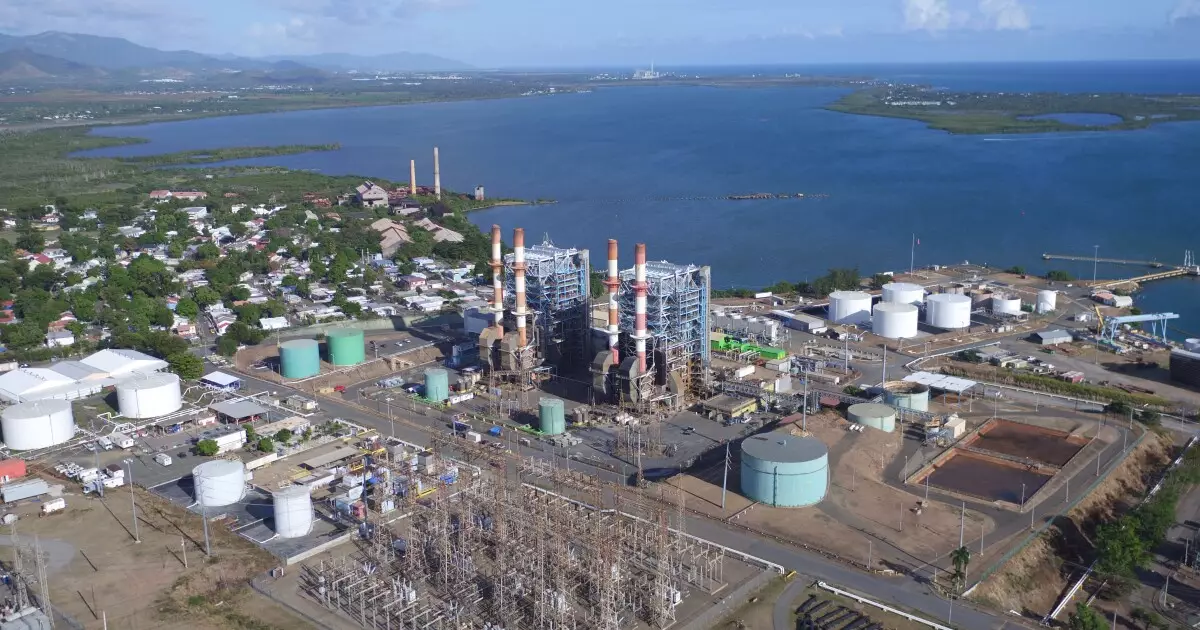The ongoing bankruptcy case of the Puerto Rico Electric Power Authority (PREPA) reveals a significant clash between the Puerto Rico Oversight Board and PREPA’s bondholders, with a staggering $3.7 billion in administrative expense claims at the forefront. This isn’t merely a financial disagreement; it’s a critical inquiry into Puerto Rico’s fiscal health and political future. The Oversight Board argues that the claims of the bondholders should be subordinate to other financial obligations of the central government, framing this conflict as a battle for the territory’s limited resources. Here, the implications extend beyond mere monetary amounts; they encompass the direction in which Puerto Rico will navigate its recovery from a decade-long economic slump.
The Oversight Board suggests that the bondholders, eager to stake a claim to central government funds, are attempting to sidestep their responsibilities. Rather than acknowledging the difficult realities faced by Puerto Rico and preferring to uphold merely their interests, they appear to use “constitutional avoidance” as a legal tactic that undermines the commonwealth’s recovery plan. This maneuver reflects a lack of genuine commitment to a solution that serves the whole of Puerto Rico. In essence, the board is asking for a level of shared sacrifice—a concept that should resonate deeply in a society still grappling with the aftermath of financial mismanagement.
The Interpretation of Bankruptcy—and Its Consequences
Amidst this turmoil, significant interpretations of bankruptcy law come into play. The contention revolves around whether the bondholders’ claims can be honored under the Chapter 11 framework, particularly given the historical context of the power authority’s fiscal mismanagement. The First Circuit Court of Appeals previously ruled that the bondholders possess collateral rights over PREPA’s net revenues. However, the Oversight Board’s position is grounded in an interpretation that posits these claims are less about entitlement and more about enforcing an equitable plan of adjustment intended to stabilize Puerto Rico’s economy.
It is intriguing that the bondholders argue they deserve compensation for revenue used improperly, suggesting a rather egocentric perspective where the repercussions of their actions are irrelevant in the grander scheme. How can we expect voters to trust an entity that puts its financial interests above the long-term stability of an economically fragile region? Their insistence that PREPA should be made to compensate them fully reveals a troubling aspect of American financial culture—where institutions prioritize profit over people, often neglecting the very societies in which they operate.
Political Ramifications and the Road Ahead
The implications of this legal battle extend beyond the immediate financial forecasts and logistical disputes. It provokes a deeper examination of Puerto Rican governance and the larger context of U.S. territorial law. The Oversight Board’s role signifies an essential shift in the island’s relationship with the federal government—one that has sparked debate about the efficacy and morality of such oversight mechanisms. The struggle for fiscal and political autonomy remains a pressing concern for many Puerto Ricans, who have long felt marginalized in decision-making processes that affect their lives.
Moreover, the assertion that the bondholders would prefer a consensual agreement hints at a recognition of both political reality and economic practicality. Yet, before reaching any agreement, parties must engage in a reckoning—recognizing that the pathways to recovery demand not just financial arrangements but a collective acknowledgment of past failures. A fair and sustainable solution is only achievable through cooperation, rather than adversarial legal tactics.
While these negotiations unfold, the Puerto Rican populace watches closely, caught between the aspirations for recovery and the sobering reality of its financial obligations. For a territory already grappling with economic adversity, the decisions made in this bankruptcy case will likely reverberate for decades to come. The legacy of PREPA’s bankruptcy could either serve as a catalyst for meaningful change or further entrench the cycles of dependency and disenfranchisement that have characterized Puerto Rico’s complicated history. In the delicate balance between financial recovery and political integrity, the outcome will not be measured merely in billions but in the every-day lives of Puerto Ricans who yearn for a brighter future.


Leave a Reply